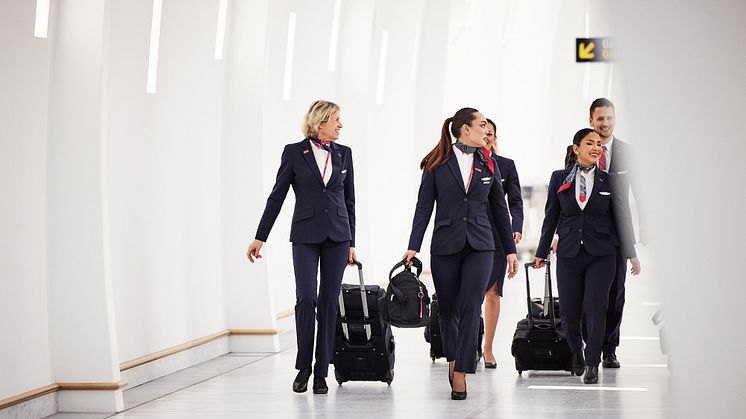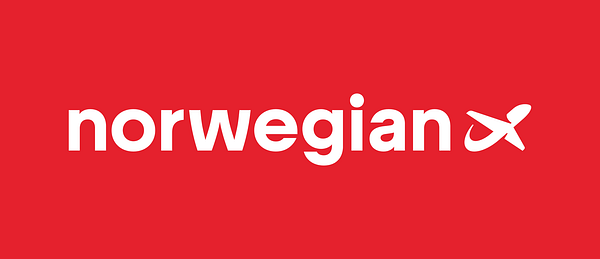
Press release -
The Norwegian Group kicks off summer programme with 2.2 million passengers in April
In April, Norwegian had 1,892,362 passengers, while Widerøe had 315,495 passengers, totalling 2,207,857 for the group. Capacity for Norwegian was up 18 percent compared to April last year, while the load factor was 80.3 percent. The airline operated an average of 81 aircraft this month, up from 73 in March, as the summer programme gets up to full speed. Regularity was negatively impacted in April, in large part due to ATC issues in Norwegian airspace.
“April marked a significant ramp up in capacity and we had on average 14 more aircraft in operation compared to the same month last year. The passenger numbers show an increase of 13 percent compared to the same period last year. We are pleased that many customers now book their summer holiday with us and advise customers that have specific dates in mind to book early,” said Geir Karlsen, CEO of Norwegian.
The capacity (ASK) was 3,155 million seat kilometres, up 18 percent from the same period last year. Actual passenger traffic (RPK) was 2,533 million seat kilometres, an increase of 14 percent from April 2023. The load factor for April was 80.3 percent, down three percentage points, in part due to the early Easter that this year predominantly fell in March. In April, Norwegian operated with a regularity, meaning the share of scheduled flights taking place, of 98.8 percent. 51 percent of all cancelled flights took place on 25 April, with both ATC strikes in Europe and the closure of airspace in Norway having large impacts on Norwegian and other airlines’ operation. The punctuality, share of flights departing within 15 minutes of scheduled time, was 81.3 percent, down two percentage points from April last year.
New routes for Norwegian and Widerøe traffic numbers
April was a month of new destinations for Norwegian. A total of nine new routes had their first take off in April. Istanbul from Oslo, Malaga from Billund and Aarhus, and Alicante from Munich were some of the highlights in a summer programme that includes a total of 47 new routes.
“We look forward to offering our customers a great summer programme with several exciting new destinations. In particular, we are very pleased to deliver an improved offering with added capacity in Denmark, our second largest market. The Danes can look forward to a total of 17 new routes, to destinations like Valencia, Toulouse, Bilbao and Milan. In addition, the Widerøe numbers for April are encouraging, and it’s good to see the hard work from the Widerøe team is bearing fruits,” said Geir Karlsen, CEO of Norwegian.
For Widerøe, capacity (ASK) in April increased to 177 million seat kilometres, an increase of 13 percent compared to April last year. The actual passenger traffic (RPK) was 113 million seat kilometres, while the load factor was 64.1 percent, up 6 percentage points.
Separate press release on Widerøe’s traffic figures is found at the Widerøe media centre. In Norwegian only.
Topics
Categories
About Norwegian
The Norwegian group is a leading Nordic aviation company, headquartered at Fornebu outside Oslo, Norway. The company has over 8,200 employees and owns two of the prominent airlines in the Nordics: Norwegian Air Shuttle and Widerøe’s Flyveselskap. Widerøe was acquired by Norwegian in 2024, aiming to facilitate seamless air travel across the two airline’s networks.
Widerøe’s Flyveselskap, Norway’s oldest airline, is Scandinavia’s largest regional carrier. The airline has more than 3,500 employees. Mainly operating the short-runway airports in rural Norway, Widerøe operates several state contract routes (PSO routes) in addition to its own commercial network. In 2023, the airline had 3.3 million passengers and a fleet of 48 aircraft, including 45 Bombardier Dash 8’s and three Embraer E190-E2's. Widerøe Ground Handling provides ground handling services at 41 Norwegian airports.
The Norwegian group has sustainability as a key priority and has committed to significantly reducing carbon emissions from its operations. Among numerous initiatives, the most noteworthy is the investment in production and use of fossil-free aviation fuel (SAF). Norwegian strives to become the sustainable choice for its passengers, actively contributing to the transformation of the aviation industry.



